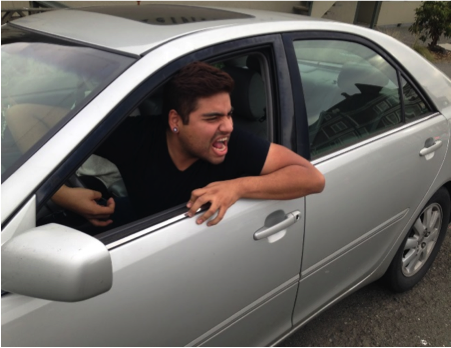Love That Transforms
Jesus calls us to defy the world's logic of revenge and scarcity—offering a love that transforms enemies, heals wounds, and sets us free.

On this seventh Sunday after Epiphany, Jesus continues the Sermon on the Plain, as he stands eye to eye with regular people who have sought him out for help, hope, and healing. This isn’t a message for the future – this is a message for people living under an oppressive Empire, whose own religious leaders have betrayed them in favor of money and power.
Jesus addresses real life problems here. These people live in an occupied land, facing Roman power and cruelty everyday. Centurions could compel Jews to surrender their property, carry their heavy packs, and curse them, hit them , or otherwise abuse them – and Jews could only endure it. Jesus gives them a way to transform their lives from victims to victory – to take the sting out of the enemy’s injustice. And, most importantly, to love like God loves. Just listen:
Luke 6:27-38
27 “But to you who are listening I say: Love your enemies, do good to those who hate you, 28 bless those who curse you, pray for those who mistreat you. 29 If someone slaps you on one cheek, turn to them the other also. If someone takes your coat, do not withhold your shirt from them. 30 Give to everyone who asks you, and if anyone takes what belongs to you, do not demand it back. 31 Do to others as you would have them do to you.
32 “If you love those who love you, what credit is that to you? Even sinners love those who love them. 33 And if you do good to those who are good to you, what credit is that to you? Even sinners do that. 34 And if you lend to those from whom you expect repayment, what credit is that to you? Even sinners lend to sinners, expecting to be repaid in full. 35 But love your enemies, do good to them, and lend to them without expecting to get anything back. Then your reward will be great, and you will be children of the Most High, because he is kind to the ungrateful and wicked. 36 Be merciful, just as your Father is merciful.
37 “Do not judge, and you will not be judged. Do not condemn, and you will not be condemned. Forgive, and you will be forgiven. 38 Give, and it will be given to you. A good measure, pressed down, shaken together and running over, will be poured into your lap. For with the measure you use, it will be measured to you.”
The murmurs of the crowd settle as Jesus lifts His voice. The sea of faces—hopeful, skeptical, curious—waits for something revolutionary. They have seen Him heal, cast out demons, challenge the powerful. Now He speaks directly to them, calling them into something they do not expect.
“Love your enemies.”
The words land heavily. Love your enemies? The very people who insult you, cheat you, betray you? Love them?
A woman in the crowd frowns, her arms crossed. She’s heard the stories of this rabbi, but this—this is madness. A fisherman at the edge of the gathering exhales sharply, thinking of Roman soldiers who take whatever they want. A tax collector, lingering near the back, lowers his eyes, wondering if forgiveness is possible for him.
Jesus does not soften His words. “Do good to those who hate you, bless those who curse you, pray for those who mistreat you.”
The air is thick with dust and disbelief. This is not how the world works. The world operates on fairness—on repaying harm with harm, kindness with kindness. But Jesus is not teaching moral instruction alone. He is recasting human relationships entirely.
Breaking the Cycle
This world is built on cycles—of violence, resentment, and self-interest. Hurt begets hurt. Power is seized and defended. Love is given sparingly, only to those who deserve it. And yet, Jesus stands on level ground, looking into the eyes of farmers, laborers, widows, zealots, and soldiers, and invites them to break the cycle. Not through force, but through love.
“If someone slaps you on one cheek, turn to them the other also.”
A murmur ripples through the crowd. A slap is an insult, a challenge to dignity. To turn the other cheek is not submission—it is defiance wrapped in grace. It is refusing to retaliate, yet also refusing to be reduced by hatred. It is standing firm in the love of God, refusing to play by the world’s rules.
“If someone takes your coat, do not withhold your shirt.”
The poor shift uncomfortably. Clothing is essential. A coat is not a luxury—it is survival. Yet Jesus says to give without hesitation. To relinquish even what is owed. To live as if there is nothing to lose.
This is not resignation. This is freedom.
Loving Beyond Reciprocity
Jesus knows human love is often transactional. “If you love those who love you, what credit is that to you?”
The crowd is silent now. He is exposing something raw—how easy it is to love when it benefits us. The world is full of conditional love, love that extends only when it is safe, easy, mutual. But Jesus offers a love that is excessive, scandalous, reckless. A love that does not ask, Do they deserve it? but rather, How can I love like God?
“Be merciful, just as your Father is merciful.”
This is the invitation: to love as God loves. Without calculation. Without expectation of return. To love not because someone has earned it, but because it is who we are becoming.
The Overflowing Measure
Jesus closes with a promise: “Give, and it will be given to you.”
And then, an image—grain poured into a basket, pressed down, shaken together, running over. Abundance. Not scarcity. Not careful measurement. God’s economy is excess, always overflowing.
To live as Jesus calls us to live is not deprivation—it is a new kind of abundance. It is the abundance of a free heart, unchained by resentment. The abundance of a life no longer measured by what it can hold onto, but by what it gives away.
The Kingdom Breaking Through
Jesus is not giving a lesson in politeness. This is not about being nice. This is about the Kingdom breaking in.
The world says, Get what you can. Protect yourself. Love those who love you. But the Kingdom says, Give extravagantly. Forgive recklessly. Love those who do not deserve it.
This is not weakness—it is the strongest thing in the world.
To love in this way is to refuse the logic of power, of revenge, of scarcity. It is to live in a new way—the way of Jesus, who will walk this path to the cross, loving even as He is crucified.
Of course, we don’t have to deal with Roman centurions, just that slow person in line ahead of us at the grocery. Or the guy in traffic who cuts too close in front of us. Or the Facebook “friend” who suddenly loses it over some political slogan. These are the folks we deal with, the ones that we’re tempted to lash out at in return. We won’t always get it right, but we shouldn’t always get it wrong, either.
So we must ask ourselves: Are we still playing by the world’s rules? Or are we ready to step into the radical, transforming love of the Kingdom?
A Prayer for Transformation
God of reckless mercy, break the walls around our hearts. Free us from the need to measure our love, to count the cost of kindness. Teach us to love beyond fairness, beyond comfort, beyond reason. May we mirror Your mercy, giving as You give—without limits, without fear. And in loving as You love, may we be transformed. Amen.



